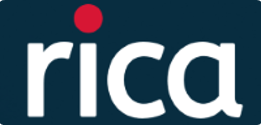Experiencias de pasantías: experimentar la docencia
Palabras clave:
prácticas, experiencias, docenciaResumen
Convertirse en maestro en estos días ha sido cada vez más desafiante. La tecnología que impregna la sociedad brasileña ha brindado un amplio acceso a la información para todos y para todos, haciendo que los docentes necesiten adaptar sus clases a la nueva realidad, trayendo nuevos recursos al aula. Además, es notable la dificultad que enfrentan los docentes y las escuelas con las condiciones de infraestructura, carga de trabajo y problemas económicos. Las prácticas de los cursos de grado permiten al alumno vivir y participar de esta realidad, pudiendo prepararse para la vida docente más adelante. El presente trabajo tiene como objetivo relatar las experiencias de las prácticas en la carrera de grado en biología, contando con las actividades desarrolladas, así como las dificultades y opiniones sobre las mismas. Es evidente que con el acceso a la tecnología, las escuelas necesitan revisar sus formas de aprendizaje. Los estudiantes ya no están satisfechos con solo una clase tradicional, es necesario usar la creatividad, creando clases más dinámicas y prácticas. Las clases prácticas mostraron interés por parte de los alumnos, teniendo un buen desempeño por parte de ellos. Además de la práctica formal, la formación en ciencias biológicas nos permite trabajar en el campo informal. El campo informal resultó ser un campo por explorar. Si bien consideramos ciertas actitudes como de conocimiento común, llama la atención cómo las sencillas actividades e información de la población en general cambian su forma de pensar y su forma de actuar.
Citas
BELLÉ, Soeni. Plantas medicinais: caracterização, cultivo e uso paisagístico na Serra Gaúcha. IFRS – Campus Bento Gonçalves, 2012.
CUNHA, G. F. Caminhos da Interdisciplinaridade. Revista Interdisciplinar de Ciência Aplicada (Rica-UCS). Bento Gonçalves, v. 1, n.1, 2016, p. 31-38. Disponível em: http://www.ucs.br/etc/revistas/index.php/ricaucs/article/view/4307, acesso 10 nov. 2018.
Escritório Triaca. Disponível em: <http://www.triacacontabil.com.br/?acao=empresa>. Acesso em: 10 ago. 2018.
FERREIRA, Vítor F. As tecnologias interativas no ensino. Química Nova, 1998, v. 21, n. 6, p. 780-786. Nov-Dez.
FRANCISCO JR., W. E. Uma abordagem problematizadora para o ensino de interações intermoleculares e conceitos afins. Revista Química Nova na Escola, n.29, 2008. P.20-23.
FREIRE, Paulo. Educação e mudança. 24.ed. São Paulo: Paz e Terra Ltda, 2001. 79 p. (Coleção educação e comunicação; v.1). ISBN 8521900147.
FREIRE, Paulo. Pedagogia da autonomia: saberes necessários à prática educativa. São Paulo: Paz e Terra, 2008. 148 p.
GIORDAN, M. O papel da experimentação no ensino de ciências. Química Nova na Escola, São Paulo, n.10, p.43-49, nov. 1999. Acesso em: 17 de abril de 2015.
GUINDANI, A.; DORNELLES, D. K.; CUNHA, G. F. Implementando uma horta temática “relógio do corpo humano” na escola. (Resumo Expandido) in: CARBONARA, V. et al. (org.) O Papel das instituições na formação docente [recurso eletrônico]: universidade, mantenedora e comunidade. Caxias do Sul, RS: Educs, 2015, p. 42-45. Disponível em: https://www.ucs.br/site/midia/arquivos/papel_instituicoes_ebook.pdf, acesso 10 nov. 2018.
LOVATO, L. B. A construção do conhecimento sobre a água por meio de uma sequência didática que emprega a estratégia de experimentação. Caxias do Sul, UCS, 2018. Dissertação (Mestrado). Universidade de Caxias do Sul. Programa de Pós-Graduação em Ensino de Ciências e Matemática. Disponível em: https://repositorio.ucs.br/xmlui/handle/11338/3509, acesso em 10 ago. 2018.
MERCADO, Luís Paulo Leopoldo (org.). Novas tecnologias na educação: reflexões sobre a prática. Maceió: EDUFAL, 2002.
MINOZZO, L. C. Proposta de procedimento metodológico para o ensino de ciências com o uso de tecnologias da informação e da comunicação. Caxias do Sul, UCS, 2015. Dissertação (Mestrado). Universidade de Caxias do Sul. Programa de Pós-Graduação em Ensino de Ciências e Matemática. Disponível em: https://repositorio.ucs.br/xmlui/handle/11338/1160, acesso em 10 ago. 2018.
MINOZZO, L. C.; CUNHA, G. F.; SPÍNDOLA, M. M. A importância da capacitação para o uso de tecnologias da informação na prática pedagógica de professores de ciências. Revista Interdisciplinar de Ciência Aplicada (Rica-UCS). Bento Gonçalves, v. 1, n.1, 2016, p. 31-38. Disponível em: http://www.ucs.br/etc/revistas/index.php/ricaucs/article/view/4306, acesso 10 nov. 2018.
MOREIRA, M. A. Aprendizagem Significativa: Um Conceito Subjacente. Aprendizagem Significativa em Revista/Meaningful Learning Review, Porto Alegre, v.1, n.3, 2011b, p. 25-46.
PERRENOUD, Philippe. Dez novas competências para ensinar. São Paulo: Artes Médicas Sul LTDA, 2000. 192 p.
ZILLE, J. A. B. Games, indicadores e geradores de possibilidades educacionais. Revista Ibero-Americana de Estudos em Educação, Araraquara, v. 6, n. 3, p. 140-151. set a dez, 2011.
Descargas
Publicado
Cómo citar
Número
Sección
Licencia
Derechos de autor 2021 Revista Interdisciplinaria de Ciencias Aplicadas

Esta obra está bajo una licencia internacional Creative Commons Atribución-NoComercial-SinDerivadas 4.0.
Los autores conservan los derechos de autor y otorgan a la revista el derecho de primera publicación, con el trabajo licenciado simultáneamente bajo la Licencia de Creative Commons Atribución 4.0 Internacional (CC BY 4.0) que permite compartir el trabajo con reconocimiento de autoría del trabajo y publicación inicial en esta revista.






